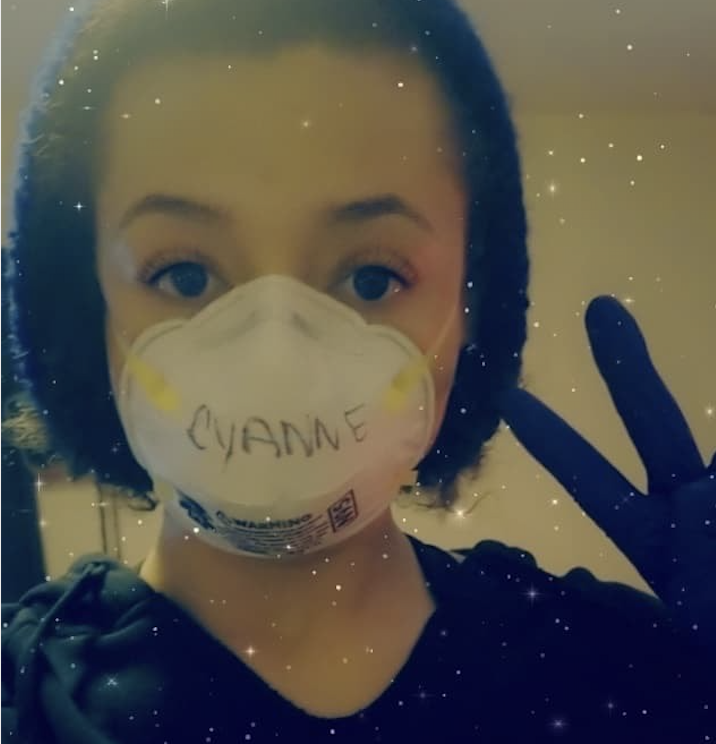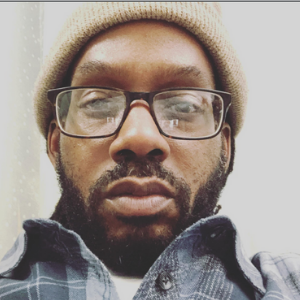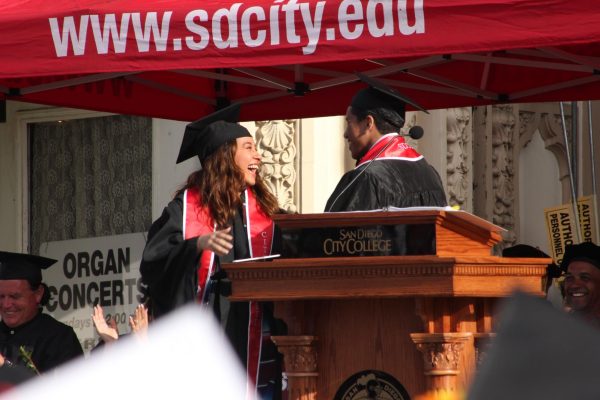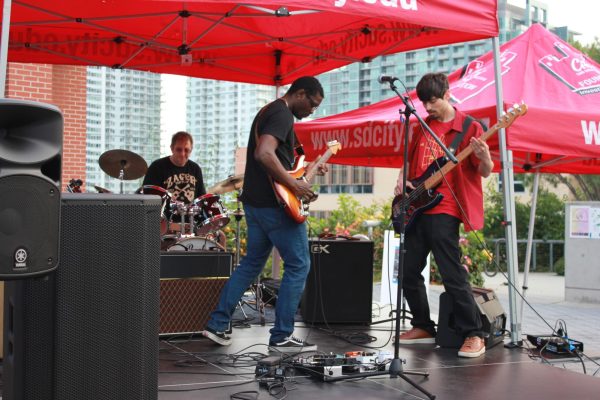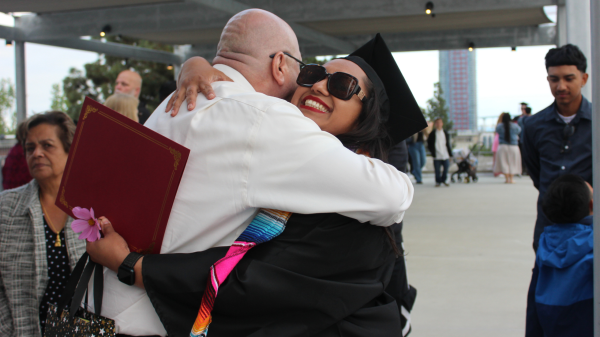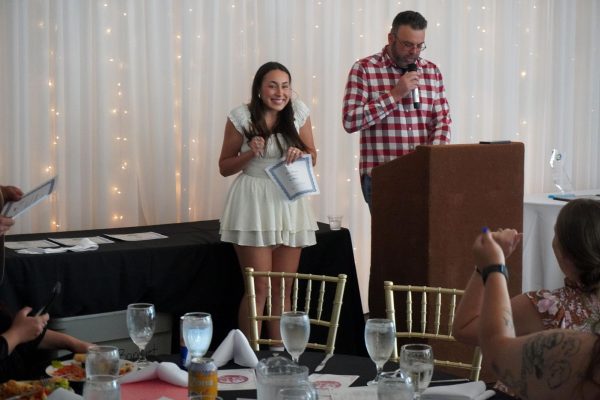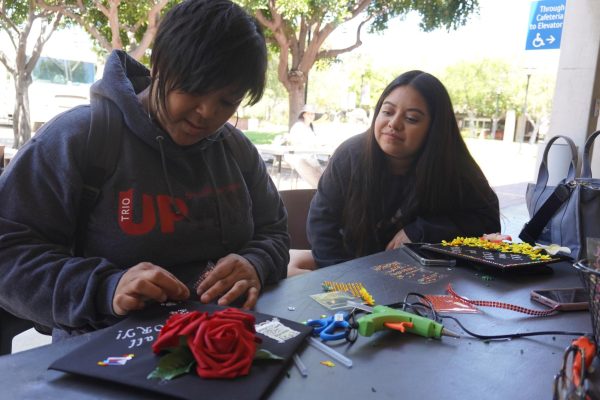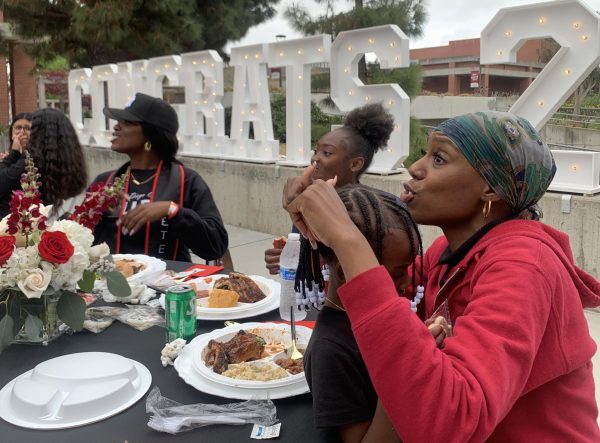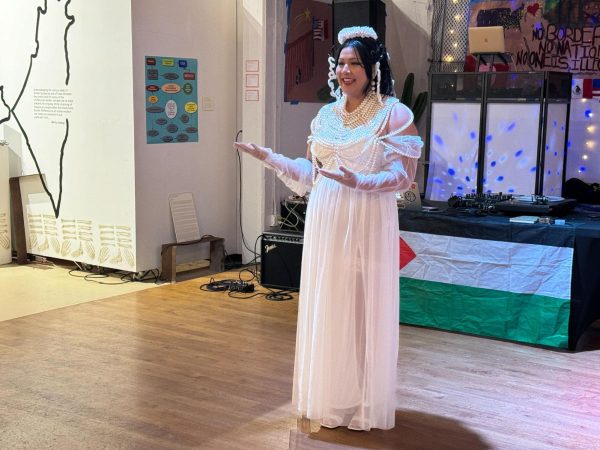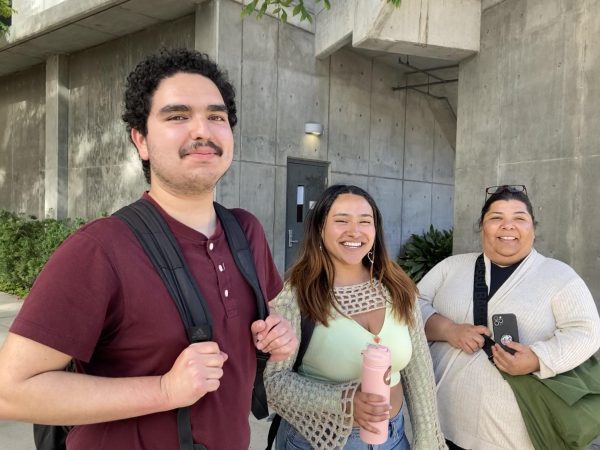City College homeless shelter worker copes with new reality
The San Diego Convention Center is being repurposed as a homeless shelter to prevent the further spread of COVID-19
City College student Cyanne Knight now works at the San Diego Convention Center assisting the unsheltered people living there. Cyanne Knight photo
April 13, 2020
Editor’s note: This is the fifth in an occasional series of journal entries produced by City Times staff highlighting the impact of the COVID-19 pandemic on members of our community.
In an attempt to stop the spread of COVID-19 among the local homeless population, Mayor Kevin Faulconer made plans to convert the San Diego Convention Center into a homeless shelter. With travel bans in place and all public gatherings canceled, the convention center offered more space to house the unsheltered.
The San Diego City Council unanimously accepted $3.7 million to fund the project, according to media reports, and a little over 800 people who had been staying in shelters would be relocated to the convention center.

City College social work student Cyanne Knight is at ground zero during the transitioning of the homeless population.
Knight worked directly with families at the Cortez Hill Family Center, a program that shelters families while transitioning to permanent housing and remaining together throughout the process.
Knight is no stranger to struggle. In fact, she was a participant in the program just over 16 years ago.
“I have a big bleeding heart when it comes to children in this situation and I’m able to make a strong connection with them because of my past situation,” Knight said.
Before the COVID-19 outbreak, Knight was a residential specialist, serving breakfast to the residents and opening the playroom for the children. Now, residents have to wait in their rooms for their meals.
In mid-March, families were relocated to hotels due to the closure of the building. The program site was in poor shape.
The Alpha Project opened two bridge shelters, one for the homeless looking to transfer back into home life, and a second that catered to those with mental health issues and disabilities. Both shelters serve the same purpose, which is to transition residents back into home life.
With stay-at-home orders in place, social distancing has become the norm for preventing the spread of the virus and has created an uncomfortable gap.
“Before the virus, making direct contact with the residents wasn’t a big thing,” Knight said. “The residents interacting with each other, (it’s) part of them being a community. The virus has created a disconnect in those transitioning.”
Due to a lack of space and new regulations, both bridge programs, with more than 300 participants each, moved to the southeast corner of the San Diego Convention Center.
Knight’s job description changed along with the location of the homeless shelter. She is now a monitor who ensures residents are following guidelines.
That includes taking their temperature and writing it down before entering the building. She also watches as residents must wash their hands, keep a distance of six feet away from each other when standing in any line and no more than three residents at a dining table at a time.
“I used to encourage residents to interact with each other as neighbors,” Knight said. “I now have to tell them to give each other 6 feet. I’m not worried about getting contaminated. I’m very confident in the steps that I have taken to protect myself.”
When it comes to her college courses, Knight agrees that not having a lecture attached to her courses makes learning more difficult, and working without physically having to attend school leaves her with too much idle time.
”During these times your mind feels as if it’s on vacation, and leaves no physical or mental separation from school and home,” Knight said. “With the campus being closed, I’m not able to use the school resources. This makes completing assignments so much more difficult. Being able to interact with your classmates makes you more engaged in the course.”
In these times, Knight reminds students it’s very important to live one day at a time.
Do you have a unique story to share about how the COVID-19 pandemic has impacted your life? Let us know on social media @SDCityTimes or leave a comment below.


